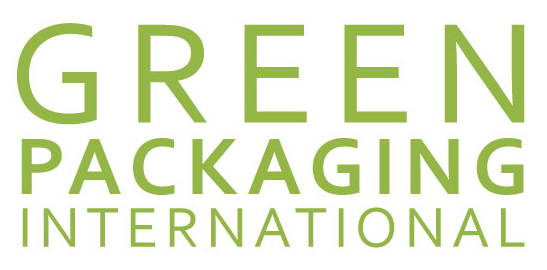Super User
Redpack closes more sales with integrated finance
Redpack Packaging Machinery designs and manufactures flow wrapping and packaging machinery. Based in Norwich, its markets include industries such as fresh produce, snack foods & bakery, pharmaceuticals, household products, greeting cards, gifts and toys.
The company had been successfully growing its turnover year-on-year and wanted to continue its impressive growth trajectory by expanding its market with an integrated finance solution.
“We already had a large market share in the UK but in order to keep growing we wanted to have more autonomy with finance and to strengthen our footprint overseas”, says Rick Briston, Business Development Manager, Redpack.
“In many ways offering integrated finance to our customers helped with both.”
As an international and expert financier, Siemens Financial Services (SFS) was the ideal partner for Redpack to achieve its ambitions and attract more business.
“What struck me about SFS was their flexibility on creating bespoke deals. The team is more than happy to use their sector knowledge to do something out of the ordinary. They also appreciate and recognise our understanding of the industry. All of this lets us pursue deals that a standard financier might not understand and so turn down.”
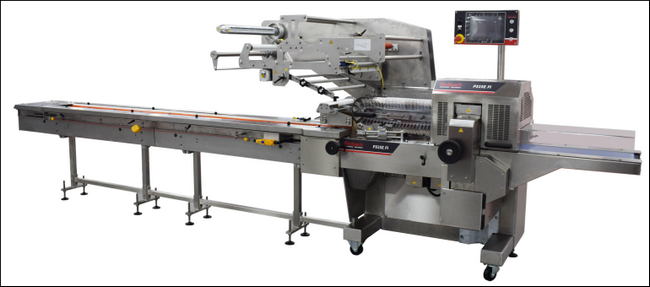
One such customer was a Dutch company that wanted to enter the UK market for the first time. Despite having established a successful operation in the Netherlands, the company had to enter the UK as a new business, which posed a potential challenge to accessing traditional lines of investment. Working with Redpack, SFS was able to offer a financing arrangement that acknowledged the Dutch customer’s footprint in Europe and its potential for success in the UK.
“Finance is a vehicle for us to help customers make investments that get them excited about building value in their business. For many of them, sustainability and efficiency are top concerns and modern equipment and machinery is a key pathway to meeting energy and carbon reduction goals.”
“What’s more, the service we receive from SFS is second to none. We have one key contact who makes herself readily available to us and proactively approaches every deal with imagination.”
As a result, Redpack can now offer customers tailored and flexible finance arrangements at point of sale resulting in more deals closed.
“When I think about it, in the first year alone finance has moved the dial for us and we’ve closed 4% more sales than we would have done without it – and this is just year one. And while we haven’t yet done any work with SFS on the continent – purely introductions – I can already see a lot of potential for the future. As we achieve greater volume overseas, we’ll have greater opportunities and this is where finance makes a difference.”
Kirsty Talmage-Rostron, Business Development Manager – UK South at Siemens Financial Services comments, “It is a pleasure working with Redpack and assisting their customers with acquiring the machinery they need to make their businesses grow. Redpack’s equipment is perfectly suited to bespoke finance options that enable the customer to invest without tying up capital, in fact with finance the equipment can pay for itself over the term of the agreement.”
New bakery packaging concept reduces CO2 emissions by a third
Viipurilainen Kotileipomo is a nearly 100-year-old company that produces pastries and artisan breads from local ingredients using traditional methods. When the bakery was looking for a new solution for its cake packaging, its key criteria were to reduce the environmental footprint of the packaging, and to make assembly quick and easy.
Viipurilainen Kotileipomo and Metsä Board's packaging design team based at Metsä Board's Excellence Centre jointly developed a resource-efficient and 100% recyclable bakery packaging. The new eye-catching packaging reduces material requirements by 25%, and carbon dioxide emissions by 34% compared to the previous packaging. At the same time, the bakery was able to reduce its use of plastic by moving away from a PE-coated board. In addition to the environmental benefits, the design of the new bakery box makes it quicker and easier to assemble.
"Packaging sustainability is important to us and our customers, and it's great to be able to spread the word about reducing plastic and promoting recycling. The whole product development process was carried out in a structured way at the Excellence Centre and the new stylish packaging was quickly brought to market," says Teppo Ylä-Hemmilä, Bread Artist and Innovation Director, Viipurilainen Kotileipomo.
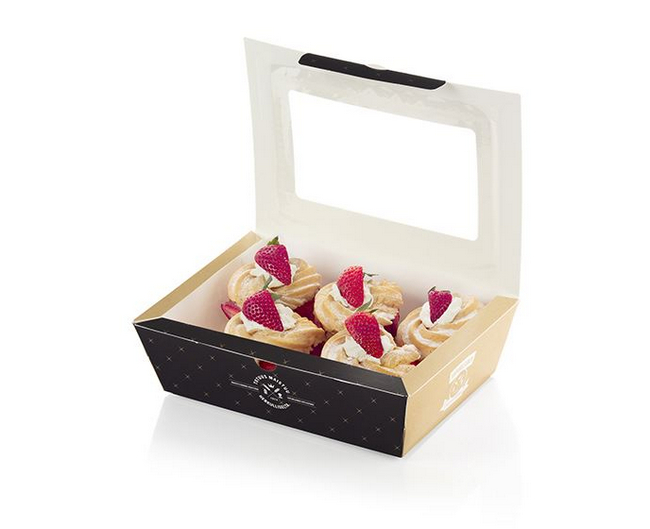
"The new concept is an excellent example of innovative solutions made possible by joint brainstorming. In designing the packaging, we used a virtual model at our Excellence Centre to quickly and accurately visualise the material, structure and its sustainability," says Ilkka Harju, Packaging Services Director, EMEA and APAC, Metsä Board.
The bakery packaging is made of lightweight MetsäBoard Prime FBB EB, a dispersion coated barrier board, which can be recycled using paper or paperboard collection waste streams. The MetsäBoard Prime FBB EB board is thick and resistant to grease, which is key for food that naturally have a high fat content such as pastries and cakes.
Metsä Board
www.metsaboard.com
Metsä Board is a leading European producer of premium fresh fibre paperboards. We focus on lightweight and high-quality folding boxboards, food service boards and white kraftliners. The pure fresh fibres we use in our products are a renewable and recyclable resource, that can be traced back to sustainably managed northern forests We are a forerunner in sustainability, and we aim to have completely fossil free mills and raw materials by the end of 2030.
Together with our customers we develop innovative packaging solutions to create better consumer experiences with less environmental impact. In 2021 our sales totalled EUR 2.1 billion, and we have around 2,400 employees. Metsä Board, part of Metsä Group, is listed on the Nasdaq Helsinki.
Metsä Group
www.metsagroup.com
Metsä Group leads the way in the bioeconomy. We invest in growth, developing bioproducts and a fossil free future. The raw material for our products is renewable wood from sustainably managed northern forests. We focus on the growth sectors of the forest industry: wood supply and forest services, wood products, pulp, fresh fibre paperboards, and tissue and greaseproof papers.
Metsä Group’s annual sales is approximately EUR 6 billion, and we have around 9,500 employees in 30 countries. Our international Group has its roots in the Finnish forest: our parent company is Metsäliitto Cooperative owned by nearly 100,000 forest owners.
Lesters boss predicts a triple whammy of spiralling fuel, energy and material costs for the packaging sector
The boss of one of the UK’s large packaging specialists is urging Government to step in to help with spiralling energy and materials costs.
Billy Hutchinson, Managing Director of Lesters, believes his sector is often overlooked when it comes to support, yet finds itself faced with a potential 30% increase in paper prices in the next month.
A number of European mills have already shut their doors, and this is going to magnify the focus on those that are left, causing inflation in charges and the possibility of instability of supply.
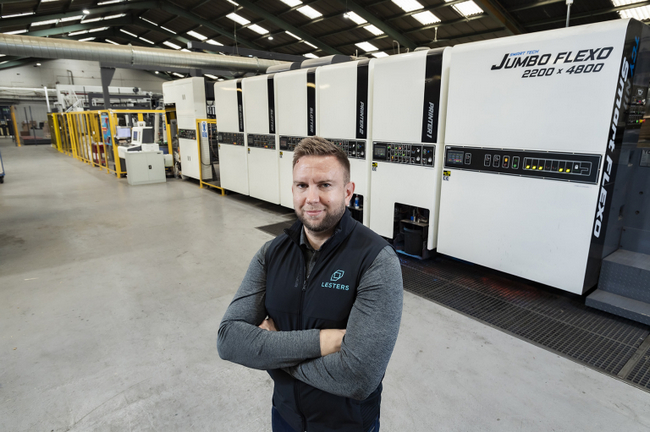 Billy Hutchinson, Managing Director of Lesters
Billy Hutchinson, Managing Director of Lesters
It comes after the Burntwood company has boosted its sales by 120% and taken on another 15 staff to cope with the rise in demand.
“There’s a perfect storm about to hit and there’s no way our sector can avoid it,” explained Billy, who has worked in the packaging industry for more than 18 years.
“It’s a triple whammy of energy, fuel and material prices all rocketing at the same time and, just the prospect of this, is enough to make people think twice about spending and this is translating into a freeze in the economy.”
He continued: “We’re already looking at how we can mitigate some of the challenges in our control and have invested heavily in new technology (which uses less energy) and switching to more solar power. This isn’t going to be a quick fix, more a long-term strategy.
“The packaging sector is taken for granted. People just see boxes, but it’s how everything is transported and crucial to everyday life. We’re going to need support and Government has a role to play in providing subsidies or tax cuts around energy usage.”
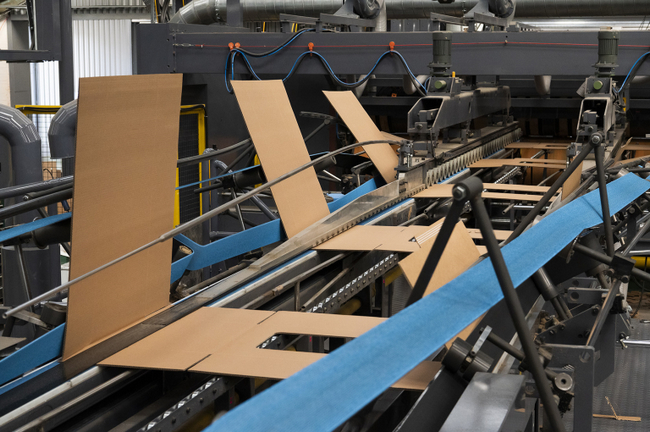
Lesters, which has become a certified CarbonNeutral® company, has become one of the major disruptors to the packaging sector.
More than £6m has been invested or in the process of being spent to ensure the firm can supply corrugated boxes, large format, heavy-duty cases and bespoke packaging to clients in the automotive, aerospace, bike manufacturing, mail order and third-party logistics space.
The business is also exploring a way of creating its own eco-system where it has full control over the whole of the packaging production process, from print ink and design, right through to distribution through Lesters Logistics in Nuneaton.
This was the first acquisition by the current management team, with plans in place to look at other complementary businesses that give it greater market share, access to new customers and wider geographic reach.
Billy concluded: “Our fuel bills have gone up from £3k to £5k per week, material prices could hit a 30% increase and our fixed term electricity contract is up at the end of the year. There will be companies in our market where those agreements finish earlier, and they will be contending with the new prices very soon - that’s going to cause major distortion.
“We’re not asking for something special, just to receive the same Government support which other sectors receive, such as aerospace and automotive. After all, without our boxes many industries would fail to operate.”
For further information, please visit www.lesterspackaging.co.uk
Tough and Tear Resistant: Cortec® VCI Reinforced Paper for Puncture Prone Metals Packaging
One challenge that metal manufacturers and finishers face is corrosion protection during shipping and storage. Many strategies exist, from coatings and liquid rust preventatives to VCI packaging. The latter has revolutionized the way metals are protected in an enclosed package, replacing greasy rust preventatives with dry corrosion protection. Yet manufacturers with sharp or pointed metal parts have the additional risk of puncture, which could ruin the integrity of the entire package. Cortec® addresses this problem with CorShield® VpCI®-146 Reinforced Paper for heavy-duty puncture prone packaging applications.
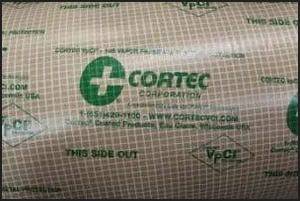 Vapor phase Corrosion Inhibitor Protection – How It Works
Vapor phase Corrosion Inhibitor Protection – How It Works
All Cortec® VpCI® brand papers are coated in-house with Cortec’s proprietary VpCI® formula. Vapor phase Corrosion Inhibitors in the coating vaporize and form a protective corrosion inhibiting molecular barrier on metal surfaces wrapped inside the paper. When the component is unpacked, the invisible protective layer does not require cleaning and the part can be used immediately.
VCI Paper - Reinforced
While standard Cortec® CorShield® VpCI®-146 Paper is enough to satisfy the corrosion protection needs of many metals being stored in one place or shipped to another, some circumstances require a tougher grade of packaging. CorShield® VpCI®-146 Reinforced Paper provides two extra benefits for these heavy-duty applications:
(1) CorShield® VpCI®-146 Reinforced Paper offers excellent tear resistance. This is important when packaging oddly shaped metals or those with pointed or sharp edges where puncture could be a concern when handling non-reinforced papers.
(2) CorShield® VpCI®-146 Reinforced Paper also includes a moisture barrier. This not only adds to the durability of the paper but also protects against the ingress of water vapor for moisture sensitive items. This quality is helpful for protecting packages that undergo harsh, high humidity environments. It is also beneficial for packaging parts still covered with grease or process oils that that might leach through or break down standard paper.
How and Where to Use CorShield® VpCI®-146 Reinforced Paper
The traits mentioned above—corrosion protection, tear resistance, and moisture resistance—make CorShield® VpCI®-146 Reinforced Paper easily adaptable to a variety of packaging needs. The standard application method is to wrap a metal item in the paper, fold edges together, and tape the paper folds in place. In addition to single item packaging, CorShield® VpCI®-146 Reinforced Paper can be used for interleaving between layers of metal components, closing the end of shipping tubes, inserting into recessed areas of large packages, and lining crates and boxes where moisture might leach through. Possible items to protect include
• Coils, wire reels, plate, bar, etc.
• Raw and machined forgings and castings
• Sheet metal work, stampings, springs, bearings, fasteners, tubing, pipes, nails, etc.
• Finished goods: engines, machinery, tools, hardware, appliances, instruments, motors, etc.
• Electrical and electronic components, controls, etc.
Whether you find yourself wrapping pipes and rods or metal coils, CorShield® VpCI®-146 Reinforced Paper is a great option for durable corrosion inhibiting moisture barrier packaging protection that resists tearing. Next time you have a puncture prone VCI packaging application, be sure to ask Cortec® about CorShield® VpCI®-146 Reinforced Paper: https://www.cortecpackaging.com/contact-us/
GOOD NEWS - Paper grocery and take-away food bags can be collected for recycling
Under a new campaign name, “Recycling in the Bag”, Fibre Circle, the producer responsibility organisation for the paper sector, teamed up with food service and packaging producer Detpak and Remade Recycling (part of the Mpact Group) to show 200 recycling collectors that paper grocery bags and brown take-away food bags can be collected from households and sold with their wastepaper collections.
The circular waste economy is a thriving network of collectors, buyers and processors, using recyclables such as wastepaper to make new products. Every year, more than 1.1 million tonnes of paper and paper packaging are recovered in South Africa and recycled into new products that we use every day. These products can then be recycled again, in many cases up to 25 times.
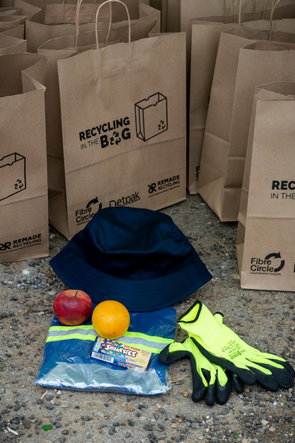 Each collector then received a pie and soft drink, along with a paper goodie bag, naturally in the same material that makes grocery bags, containing a reflective T-shirt, sun hat, safety gloves, fresh fruit and a box of Smarties, also in a recyclable paper box. Paper recycling is largely based on different grades of paper. In industry speak cardboard boxes are termed K4 while used white office paper is termed as HL1 (heavy letter 1). Cereal boxes, egg cartons and other similar paper items are deemed common mixed waste (CMW).
Each collector then received a pie and soft drink, along with a paper goodie bag, naturally in the same material that makes grocery bags, containing a reflective T-shirt, sun hat, safety gloves, fresh fruit and a box of Smarties, also in a recyclable paper box. Paper recycling is largely based on different grades of paper. In industry speak cardboard boxes are termed K4 while used white office paper is termed as HL1 (heavy letter 1). Cereal boxes, egg cartons and other similar paper items are deemed common mixed waste (CMW).
Thankfully, citizens only need to know whether something is recyclable or not. Once packaging or a recyclable product leaves our home with a waste collector or recycling company, they tend not to think about where it goes.
For a waste collector who sells our recyclables to a buy-back centre or recycling branch, the type of paper – and the value they get for it – is significant.
It is important for the respective grades to be separated and baled together as they form the ingredients for the paper products they will be recycled into.
Samantha Choles, Fibre Circle communications manager, explains, “Old cardboard boxes and paper bags will be repulped into other paper types – these will become new cardboard boxes and paper bags, and so the cycle continues.”
Used white paper is recycled into tissue products such as toilet paper while several paper grades are recycled into common household packaging such as matchboxes, tooth paste boxes and cereal boxes.
“With paper bags now synonymous with suburban and city-based grocery deliveries after Covid kept many of us away from supermarkets, Detpak and its customers felt that it was important to close the loop with the production and recycling of paper bags,” explains Carla Breytenbach, marketing manager for Detpak.
At Remade Recycling’s Midrand branch, small groups of collectors were invited to a discussion and demonstration by Anele Sololo, manager for education and SMME development at Fibre Circle.
Each collector then received a pie and soft drink, along with a paper goodie bag, naturally in the same material that makes grocery bags, containing a reflective T-shirt, sun hat, safety gloves, fresh fruit and a box of Smarties, also in a recyclable paper box.
“Safety and visibility is a key aspect in the lives of collectors who navigate the busy streets of our suburbs daily making an honest living,” notes Donna-Mari Noble, communications manager for the Mpact Group’s Recycling business, which includes Remade Recycling.
With Global Recycling Day coming up on Friday 18 March, what better way to contribute to the circular economy than by adding your paper bags to your recycling?” If you are not recycling yet, start simple by putting out recyclables such as cardboard boxes, pizza boxes, grocery bags and other similar packaging on your pavement for recycling collectors.
For more information on what is recyclable, visit https://fibrecircle.co.za/promotional-material/
ABOUT FIBRE CIRCLE
As a government recognised producer responsibility organisation, Fibre Circle manages extended producer responsibility programmes to keep paper and paper packaging – a renewable and recyclable product - out of South Africa’s landfills. It currently has 180 registered producers including paper manufacturers, importers, brand owners and retailers.
New Revolutionary EcoSonic® VpCI®-125 ESD Shrink Film (HP-UV)
Multi-Metal Corrosion Protection with Strong Static Dissipative Properties!
New EcoSonic® VpCI®-125 ESD Shrink Film (HP-UV) combines the latest film technology with the most effective corrosion protection for all of your metal products. This revolutionary ESD shrink film is mixture of high (UV) and Vapor phase Corrosion Inhibitor Technology. This film is unique in its ability to prevent corrosion and ESD damage. It combines multi-metal corrosion protection with strong static dissipative properties. EcoSonic® VpCI®-125 ESD Shrink Film (HP-UV) has many practical characteristics. Users of the film can shrink wrap their small or large components as normal to conform to the shape of the object.
EcoSonic® VpCI®-125 ESD Shrink Film (HP-UV) replaces conventional rust preventatives such as oils and desiccants, allowing your product to be used immediately without cleaning or degreasing. Sealing your product in this VpCI® ESD Shrink Film will protect a wide variety of metals from rust, tarnish, stains and oxidation. It enables cost savings because EcoSonic® VpCI®-125 ESD Shrink Film (HP-UV) will eliminate all the degreasing or coating removal required in the past. The products can be used immediately. Additionally, it does not contain free amines, phosphates, or halogen-based materials and is non-toxic and recyclable.
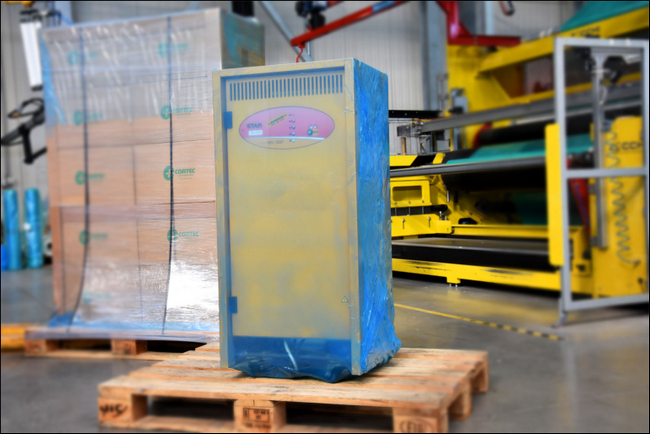
EcoSonic® VpCI®-125 ESD Shrink Film (HP-UV) effectively protects components from electrostatic discharge. It conforms to the surface resistivity and static decay requirements of MILPRF-81705 D (Static Dissipative Packaging Materials). The film is safe to use and does not contain any harmful Prop 65 ingredients. EcoSonic® VpCI®-125 ESD Shrink Film (HP-UV) has been tested effective for up to 2 years of corrosion protection and 1 year of ESD protection. The corrosion inhibitors vaporize and condense on all metal surfaces within the enclosed space and diffuse to every area of your part; protecting its exterior, as well as void spaces and recessed areas. Equipment is completely protected from corrosion during storage, lay-up, and staging as well as during domestic and overseas shipments.
ADVANTAGES
- Contains Vapor phase Corrosion Inhibitors (VpCI®) to protect void
spaces and recessed areas
- Will shrink using a wide variety of shrink tools including electric and
propane heat guns
- Provides UV protection for outdoor storage
- Provides multi-metal VpCI® protection to ferrous and non-ferrous metals
Designed with the “Circular Economy” in Mind
This recyclable and non-toxic film prevents ESD damage while not affecting optical properties. It will not affect plastics used in electronic industry. The film meets NACE TM0208-2008 “Vapor Corrosion Inhibiting Ability” and NACE RP0487-2000 “Selection of Rust Preventives Standards”. Today, “greener” ways to approach packaging have become imperative. This includes looking at the entire range of the product’s life cycle—from raw material sourcing to disposal. With this in mind, Cortec® Corporation has been working tirelessly to introduce viable packaging options that can make the “circular economy” a reality. For more than two decades, Cortec® has been a leader in environmentally safe films and bags.
Cortec® Corporation is the global leader in innovative, environmentally responsible VpCI® and MCI® corrosion control technologies for Packaging, Metalworking, Construction, Electronics, Water Treatment, Oil & Gas, and other industries. Our relentless dedication to sustainability, quality, service, and support is unmatched in the industry. Headquartered in St. Paul, Minnesota, Cortec® manufactures over 400 products distributed worldwide.
With its longstanding experience in the tissue packaging sector and its ecosystem approach, Körber Business Area Tissue, at the Tissue World in Miami
With its longstanding experience in the tissue packaging sector and its ecosystem approach, Körber Business Area Tissue, at the Tissue World in Miami, will present new and innovative technological solutions for the North American market to support customers in their continued business growth.
The tissue industry is facing significant pressures in terms of commodity price volatility, competition in global markets and increased demand for product differentiation. This is a highly challenging scenario, especially considering that the environmental impact of the tissue industry must also be increasingly taken into account.
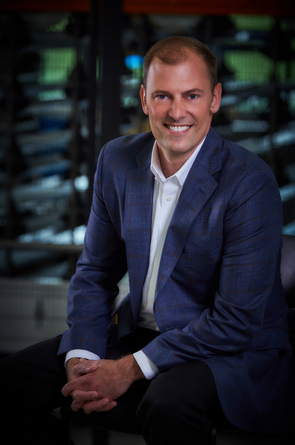 Pete Augustine, President of Körber Business Area Tissue North AmericaTo address the changing needs of both market and customers, Körber is positioning itself as a strategic partner capable of providing comprehensive solutions such as the “Körber ecosystem.” The ecosystem includes all the know-how and expertise of the Group’s various Business Areas, from Supply Chain all the way to the most advanced artificial intelligence software. Thanks to this approach Körber is the only truly integrated and global supplier with an exclusive product portfolio on the market and a global presence.
Pete Augustine, President of Körber Business Area Tissue North AmericaTo address the changing needs of both market and customers, Körber is positioning itself as a strategic partner capable of providing comprehensive solutions such as the “Körber ecosystem.” The ecosystem includes all the know-how and expertise of the Group’s various Business Areas, from Supply Chain all the way to the most advanced artificial intelligence software. Thanks to this approach Körber is the only truly integrated and global supplier with an exclusive product portfolio on the market and a global presence.
Körber Business Area Tissue will be present at Tissue World in Miami from 16th to 18th March 2022 at stand D20 to present new packaging solutions with technologies that provide the perfect balance between sustainability, efficiency, and profitability.
The American market is characterized by its constant search for automation, efficiency, and new technologies that are capable of creating large format packs, especially as e-commerce is still booming.
Körber's R&D also plays a key role in designing solutions for the packaging of high-performance, automated, easy-to-use tissue products that also allow the development and growth of business related to e-commerce.
A speech by Pete Augustine, President of Körber Business Area Tissue North America, is planned for March 17th at 3.30 pm ET (USA). Among other things he will provide an overview of the latest technological solutions developed by the company in the field of packaging and how they can help tissue manufacturers and converters to develop their business.
These are some of the innovations that will be presented at the event:
- Casmatic A6T XL, a new version of the best-selling wrapper Casmatic A6T, that meets requirements for large tissue packs up to 16”/ 410mm.
- Casmatic Zephyrus, a new modular, flexible and easy to install model that introduces a new concept of sustainable packaging that is suitable for e-commerce sales
- Casmatic CMB270 NA – a bundler designed specifically for the North America market, able to offer greater versatility and speed for the formats that are most in demand in the American market.
- Sam Pack - The exclusive system for automatic monitoring and quality management of primary packaging which, thanks to the use of artificial intelligence, stands out for its precision, reliability and ease of use.
Körber Business Area Tissue
At Körber, our ultimate goal is to empower our customers’ ongoing success. We are the only truly integrated and global provider of advanced solutions for the tissue business. We offer the industry’s most comprehensive portfolio of tissue technology to support customers across the entire value chain — from roll to fold, from converting to packaging. Our advanced, automated, and easy-to-use integrated solutions are a fundamental asset to shape the success in tissue, take our customers operations to the next level, and strengthen their overall financial performance while optimizing their total cost of ownership.
About Körber
We are Körber – an international technology group with about 10,000 employees, more than 100 locations worldwide and a common goal: We turn entrepreneurial thinking into customer success and shape the technological change. In the Business Areas Digital, Pharma, Supply Chain, Tissue and Tobacco, we offer products, solutions and services that inspire. We act fast to customer needs, we execute ideas seamlessly, and with our innovations we create added value for our customers. In doing so, we are increasingly building on ecosystems that solve the challenges of today and tomorrow. Körber AG is the holding company of the Körber Group.
Global mould specialist dexter MT new partner in PulPac’s expanding Dry Molded Fiber network
In a world searching for alternatives to plastics, the market pull for Dry Molded Fiber is enormous. To effectively scale and support converters in the transition to the new technology, PulPac continuously expands the network of preferred partners and suppliers. dexter Mould Technology, specialist in designing, developing, and building high quality moulds for the thermoforming process, now becomes part of this global network of leaders supporting the Dry Molded Fiber community.
“We are excited to join this network of innovative and proficient leaders. Innovation is part of our daily work and doing business sustainably is a given. By working closely and in long-term partnerships with our customers, we know what the market needs. The packaging industry is transforming, and we strongly believe in Dry Molded Fiber as a new standard for sustainable packaging. By applying our expertise and craftmanship in mould making to this pioneering technology we can support existing and new customers in their transition to fiber-based alternatives”, says Jeroen Berns, Sales Manager at dexter Mould Technology.
Dry Molded Fiber, invented and patented by PulPac, is available to converters, brands and partners that seek to be part of the transition towards truly sustainable fiber-based packaging. Besides unmatched sustainability features the unique fiber forming technology offers unit economics competitive enough to make a viable shift from single-use plastics to fiber-based alternatives.
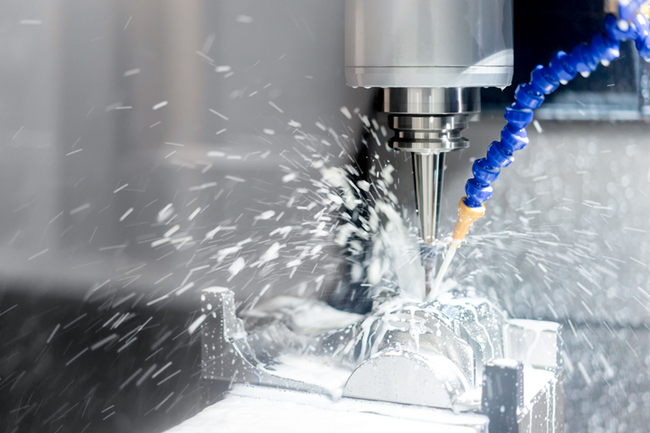 dexter Mould Technology, specialist in designing, developing, and building high quality moulds for the thermoforming process, has joined PulPac’s worldwide network supporting the dry molded fiber community.
dexter Mould Technology, specialist in designing, developing, and building high quality moulds for the thermoforming process, has joined PulPac’s worldwide network supporting the dry molded fiber community.
“Converters all over the world are ready and eager to develop their business with fiber-based alternatives. dexter MT is a recognized and established toolmaker that brings world-leading knowledge, experience of high-quality mould-making and capacity to the Dry Molded Fiber network. By working together, we can scale quickly and give converters access to quality-assured production tools”, says Sanna Fager, Chief Commercial Officer at PulPac.
About dexter Mould Technology
dexter Mould Technology has been building moulds for the thermoforming industry since 1964. The word ‘dexter’ in Latin means ‘skilful’. And ever since we started working in this specialised field, craftsmanship has been the mainstay of the dexter Group. We never stop innovating, and because we work closely with the top suppliers of thermoformers, we know exactly what the market needs.
For additional information about dexter Mould Technology, please visit https://dextermt.nl or follow us on social media.
About PulPac
PulPac provides the packaging industry with a groundbreaking manufacturing technology for low-cost, high-performance fiber-based packaging and single-use products. By pioneering the technology of cellulose molding PulPac enables their customers to replace single-use plastics with a sustainable and cost competitive alternative globally.
For additional information about PulPac, please visit www.pulpac.com or follow us on social media.
About Dry Molded Fiber
Dry Molded Fiber, invented and patented by PulPac, is a manufacturing technology designed for the circular economy. It leverages globally available, affordable, and renewable cellulose fibers to produce high performance fiber-based packaging and single-use products with highly competitive unit economics. Dry Molded Fiber also saves significant amounts of valuable water resources and energy, resulting in up to 80% lower CO2 footprint compared to alternatives. The process is up to ten times as efficient as conventional fiber molding invented over 100 years ago, and the process has typical outputs that are comparable to those of the thermoforming process.
Innovating in Barrier Technology
Over half (51%) of retail sales globally are a result of online shopping , and this e-commerce growth shows no sign of abating. At the same time, there is mounting pressure on retailers and brands to live up to consumers’ sustainability expectations.
Both trends are putting pressure on supply chains – and the packaging that these goods travel in. So, we need to get the packaging right. Doing so makes for a more efficient supply chain and reduces the packaging and item’s impact on the environment. Packaging that is expertly designed and fit for purpose can help to reduce waste in several ways – including preventing the items from being damaged and returned, as well as reducing the amount of packaging used, benefitting both a brand’s reputation and the environment.

About Susana – Susana joined DS Smith in 2019 and is a packaging specialist with more than 20 years of industry experience.
Keeping materials in circulation
Fibre based packaging has the highest recycling rates of any packaging, and therefore is the ideal choice for brands looking to make their supply chains more sustainable. At DS Smith our box-to-box circular business model means that we can recycle cardboard and use its fibres in new packaging in just two weeks. Additionally, we’re able to recycle fibres up to 25 times, making sure we keep materials in circulation for longer.
Of course, other materials have alternative properties, such as plastic being able to keep food fresh for long shelf-life applications and act as a barrier to liquid. It’s important that we harness these useful properties in cardboard packaging and ensure our cardboard boxes are as strong as possible, to reduce the number of hard to recycle plastics in circulation and prevent further plastic litter making its way into the sea. Following the recent global push to reduce plastic pollution in our oceans, there could not be a more pertinent time to ensure that we are eliminating hard-to-recycle plastics.
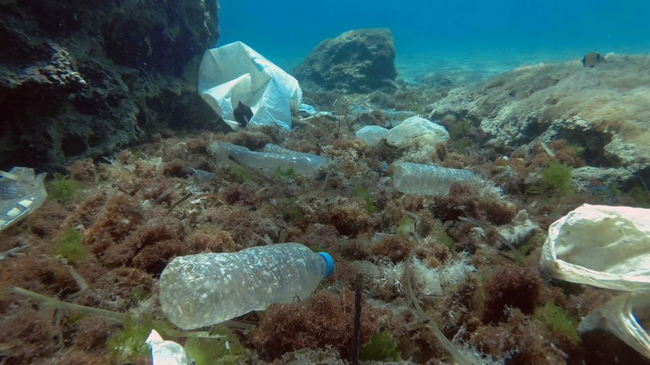
Supplementing fibres to make products stronger
Barrier technology development and innovation is pivotal to this effort of using fibre-based packaging to replace hard-to-recycle plastics. Innovations in surface treatments, coating formulations and technologies of application are key to developing recyclable corrugated board boxes able to contribute to the reduction in the use of plastic. This involves supplementing fibres to make products stronger and water-resistant to emulate the properties of plastic packaging.1
Finding the right fit
Protecting e-commerce goods in transit from when they enter a box in the supply chain to the point of delivery to the customer is essential. But not every journey is the same. It is key that the right barrier is used on each box, to optimise it for performance and sustainability. From how it is applied, its efficiency, to considerations such as how easily it allows the board to be folded into a box – designers must take everything into account.
Through the supply chain, boxes can be subjected to various pollutants, such as water, humidity, and grease. All of these can cause damage to the packaging and its contents if not adequately protected.
The challenge lies in which material is used to manufacture these barriers. DS Smith harness the experience and expertise of our designers to optimise packaging barriers for recycling. If a traditional plastic solution is to be used, this should be fully recyclable or have properties that allow the plastic to break down in the recycling process. At DS Smith, our threshold is that a conventional plastic barrier should make up no more than 5% of the box’s content, otherwise this will reduce its recyclability.
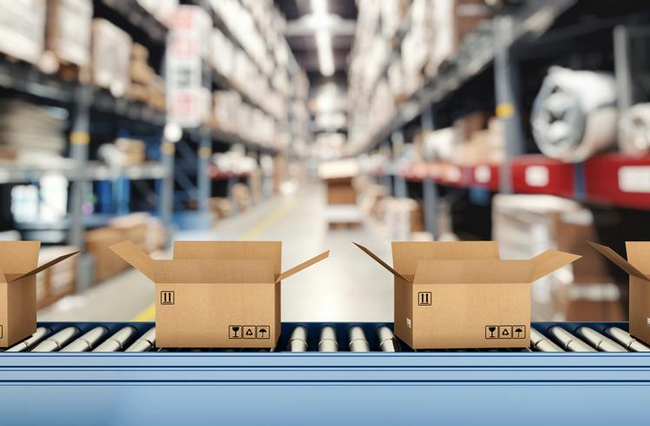
Sustainable lamination technology is one possible option for fibre solutions that could replace hard-to-recycle plastics in packaging in traditional or e-commerce channels. A thin plastic layer can be laminated on top of the fibre board, and we can ensure that this constitutes less than 5% of the box. There are also alternatives of non-plastic materials for lamination giving barrier properties for certain applications.
Ongoing innovations
DS Smith’s R&D team have created a further innovative barrier option which uses biodegradable and water-soluble polymers to protect a box on its journey to the customer. These can be separated from the recyclable fibres during the recycling process. Therefore, these plastic alternatives could in theory constitute more than 5% of the box if necessary, as the consumer is not being relied on to make the separation. Using recyclable plastic alternatives is beneficial for the environment as it means that hard plastics are removed from circulation, and the adoption of biodegradable fibres means that there is less contamination in the recycling process.
In other instances, the plastic layer can be eliminated entirely using a substitute such as coating or varnishes. Different formulations of coatings are under investigation at DS Smith’s R&D Programme. These coatings are robust to protect the box, whilst also working towards 100% recyclability – and a circular economy.
Long term goals
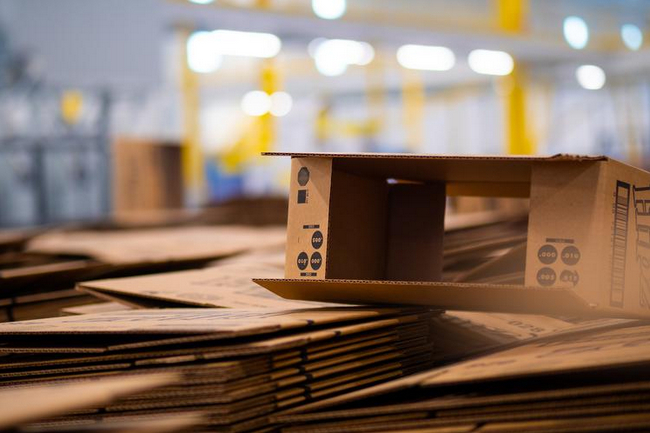
As we look to the future, our R&D team continues to put sustainability at the heart of our innovation process, aligning with DS Smith’s Circular Economy led Now and Next Sustainability strategy which pledges to offer all customers 100% recyclable packaging within two years. As part of our £100 million R&D investment, a key focus of ours will be accelerating research into new materials, including expansion of barrier technologies which can be utilised in e-commerce packaging.
The options for barrier technologies continue to expand and fibre-based solutions are challenging the misconception that plastic is the best protection for goods in transit. Not only can they provide proper protection, but their recyclability makes them more sustainable too.
1 https://www.wundermanthompson.com/news/over-half-of-spend-globally-will-be-online-post-covid-19-pandemic
Solenis Joins as New Partner in PulPac’s Expanding Dry Molded Fiber Network
Global leader in specialty chemicals for paper packaging to provide sustainable barrier coating solutions
In a world desperate for alternatives to plastics, the market-pull for dry molded fiber is enormous. To support converters in the transition to the new technology, PulPac continuously expands its network of preferred partners and suppliers. Solenis, a leading global producer of specialty chemicals focused on delivering sustainable solutions, has joined this global network of leaders supporting the dry molded fiber community.
“We are excited to be a force for sustainable change in the packaging industry by contributing to this groundbreaking technology. Solenis has a prominent culture of innovation, consistently delivering new-to-the-world products and next-generation technologies to meet the ever-changing market needs and challenges our industrial customers face. I believe we are uniquely positioned to provide safe and sustainable barrier solutions designed for circularity to the dry molded fiber converters that lead the way and set new standards for fiber-based packaging,” says Daniel Palrén, Business Development Manager at Solenis. “Fiber-based products coated with these barrier coatings typically are repulpable, recyclable, compostable and biodegradable, thereby offering packaging producers a way to improve their sustainability credentials with brand owners, retailers and consumers.”
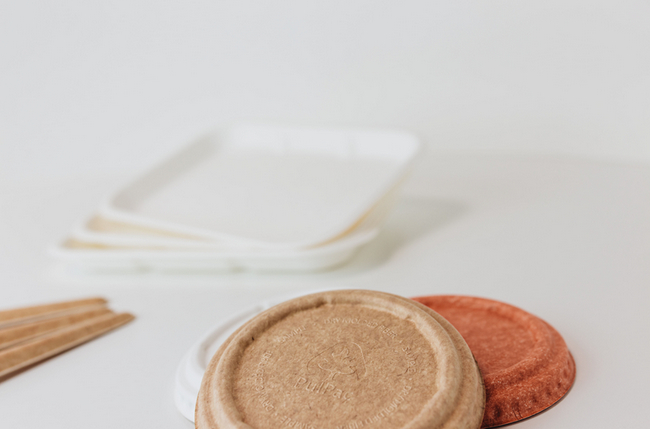 Solenis, a leading global producer of specialty chemicals, has joined PulPac’s worldwide network supporting the dry molded fiber community
Solenis, a leading global producer of specialty chemicals, has joined PulPac’s worldwide network supporting the dry molded fiber community
Dry Molded Fiber, invented and patented by PulPac, is a fiber-forming technology available to converters, brand owners and partners to help create a new and competitive standard in sustainable packaging. The pioneering technology is designed for the circular economy and uses affordable, globally available, renewable cellulose fibers to produce high-performance, fiber-based packaging and single-use products with highly competitive unit economics. Saving significant amounts of valuable water resources and energy, a dry molded fiber product can have up to 80% lower CO2 footprint compared to alternatives.
“Collaboration is key to putting an end to plastic pollution. By working together with leaders such as Solenis, we expand capabilities, expertise and capacity and speed up the on-going global transition to fiber, away from single-use plastics. The collaboration already shows very good results and together with Solenis’ reach, know-how and platform as a leading global chemistry supplier in fiber, we can work wonders on barrier technology,” says Linus Larsson, Chief Executive Officer at PulPac.
About Solenis
Solenis is a leading global producer of specialty chemicals, focused on delivering sustainable solutions for water-intensive industries, including the pulp, packaging paper and board, tissue and towel, oil and gas, petroleum refining, chemical processing, mining, biorefining, power, municipal, and pool and spa markets. The company’s product portfolio includes a broad array of water treatment chemistries, process aids and functional additives, as well as state-of-the-art monitoring and control systems. These technologies are used by customers to improve operational efficiencies, enhance product quality, protect plant assets, minimize environmental impact and maintain healthy water. Headquartered in Wilmington, Delaware, the company has 47 manufacturing facilities strategically located around the globe and employs a team of over 6,000 professionals in 120 countries across five continents. Solenis is a 2021 US Best Managed Company.
For additional information about Solenis, please visit www.solenis.com
About PulPac
PulPac provides the packaging industry with a groundbreaking manufacturing technology for low-cost, high-performance fiber-based packaging and single-use products. By pioneering the technology of cellulose molding PulPac enables their customers to replace single-use plastics with a sustainable and cost competitive alternative globally.
For additional information about PulPac, please visit www.pulpac.com
